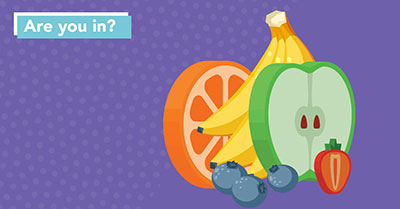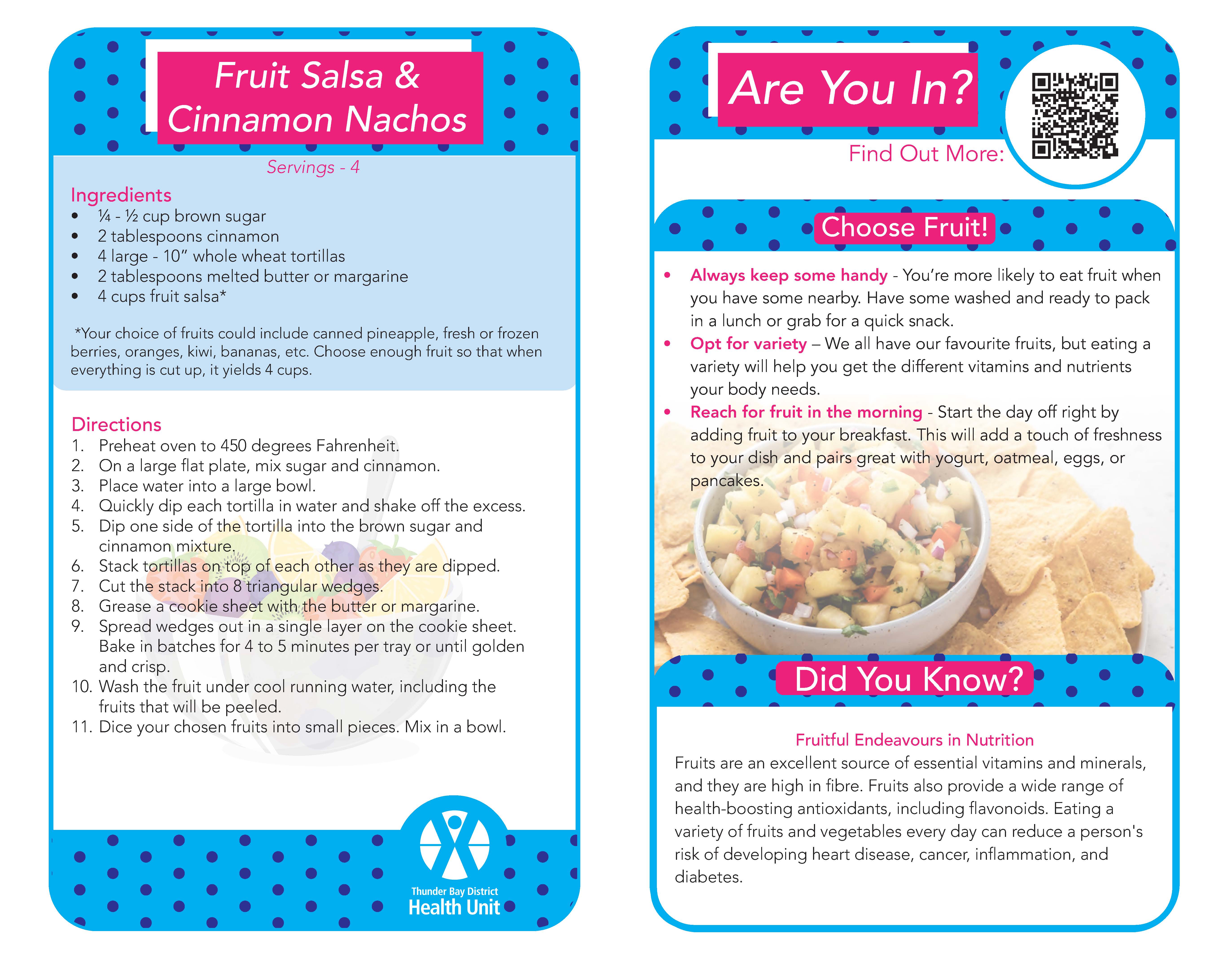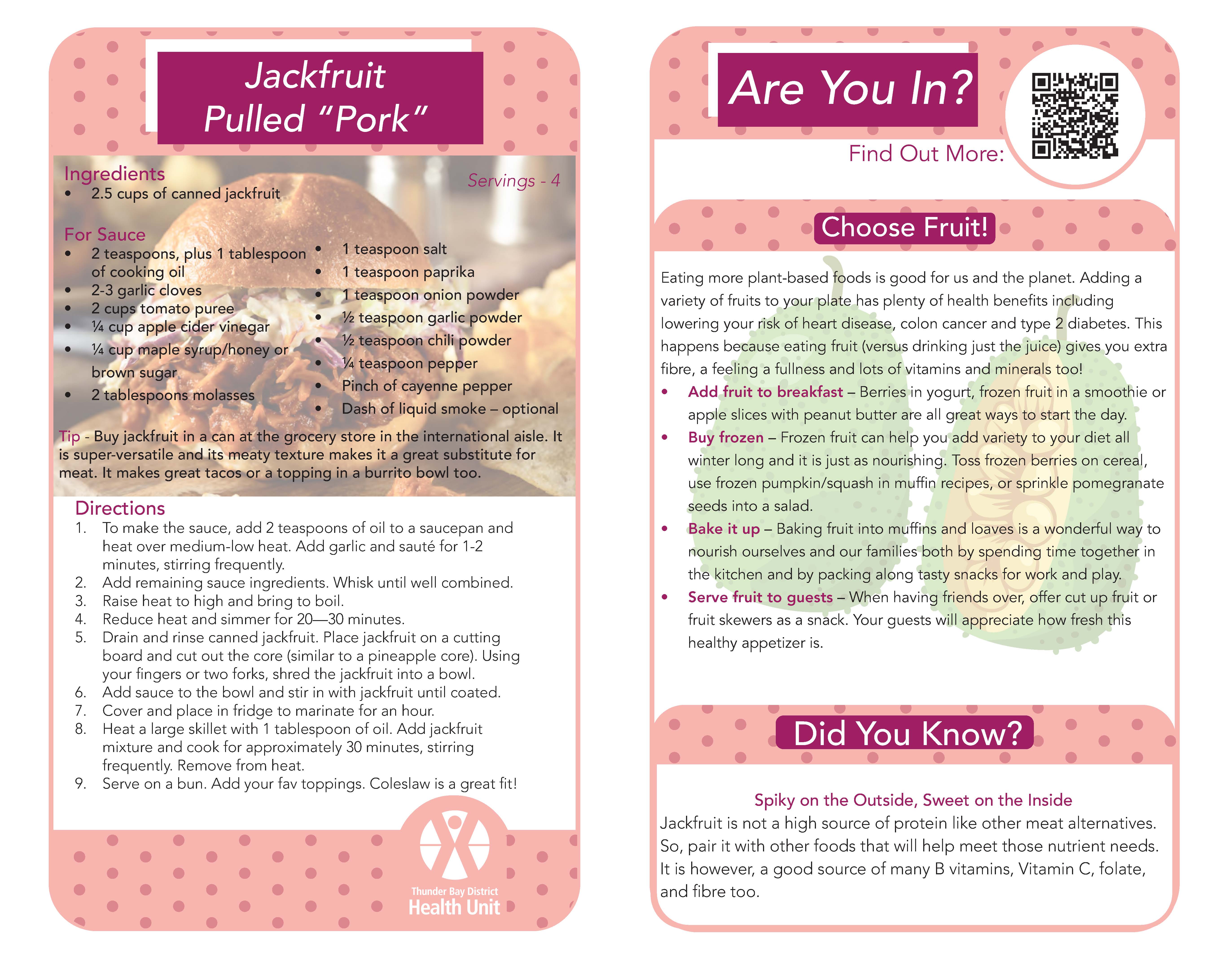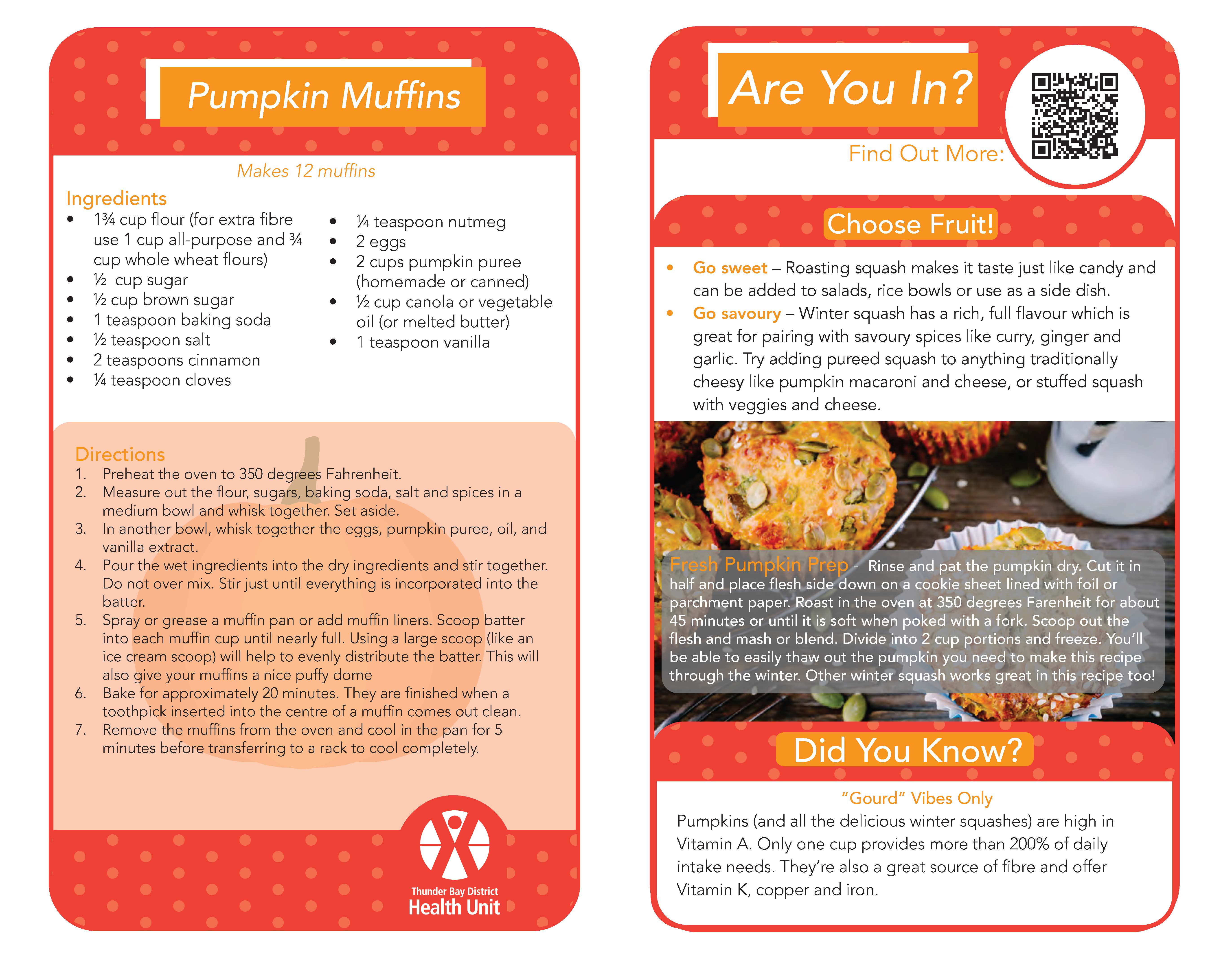
Fruit Recipes



Tips
- Keep whole fruit on hand, such as apples, oranges, bananas or pears, that are easy to grab when you’re in a rush or on the go.
- Buy fruit in bulk to save costs, such as bags of apples.
- Enjoy dried fruit like raisins, apricots, and prunes.
- Choose water when you’re thirsty – have a filled reusable water bottle close by throughout the day.
- Offer fruit at meetings if food is being served.
- Buy frozen fruit to help save money and time and add to cereal, smoothies, pancakes, or enjoy as a snack all on its own.
Fast Facts
- Drinking juice is not as filling as eating the whole fruit. While unsweetened 100% fruit juice has some of the nutrients, such as vitamin C, potassium and B vitamins, found in whole fruit, it has more sugar and less fibre. 125 mL (1/2 cup) of apple/orange juice has similar amounts of sugar as 1½ - 2 apples/oranges and minimal (with pulp) or no fibre (without pulp). (Reference: BrightBites)
- Unsweetened 100% fruit juice has some of the nutrients, such as vitamin C, potassium and B vitamins, found in the whole fruit; however, fruit juice lacks the fibre found in whole fruit. Fruit juice is considered a source of free sugar even when unsweetened. (Reference: BrightBites)
External Links